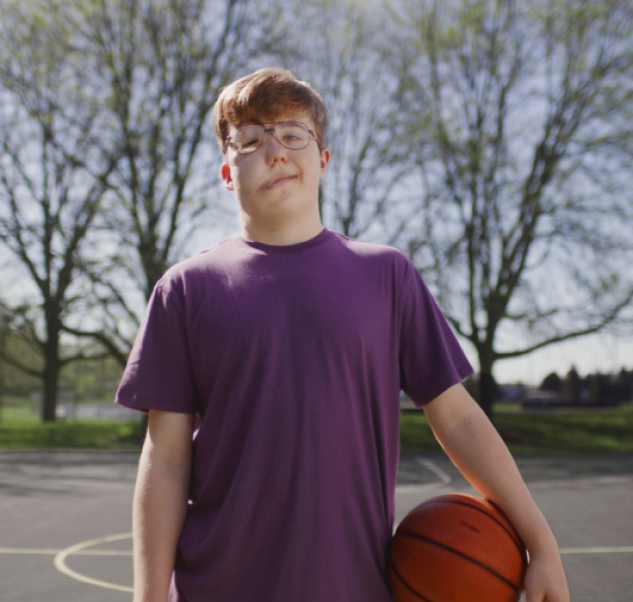STAY INFORMED ABOUT NF1 PLEXIFORM NEUROFIBROMAS
To receive the latest updates, tools, and tips about NF1 plexiform neurofibromas and Koselugo, please provide us with some information about yourself.
OVER 1200
CHILDREN AND TEENS HAVE BEEN PRESCRIBED KOSELUGO

Quentin, age 16, living with
NF1 PN. Quentin is taking
Koselugo.
Koselugo is a prescription medicine that is used to treat children 2 years of age and older with neurofibromatosis type 1 (NF1) who have plexiform neurofibromas (PN) that cannot be completely removed by surgery. It is not known if Koselugo is safe and effective in children under 2 years of age.
Help is with you every step of the way. Connect with a Patient Education Manager (PEM) for personalized support. Explore other offerings from OneSource™.
Find supportDownload resources and watch videos to learn more about Koselugo.
Explore resourcesGet connected with the NF1 community, listen to real stories, and learn more about Peer Connects, a program that lets you speak with Koselugo caregivers and their children.
Connect with communityTo receive the latest updates, tools, and tips about NF1 plexiform neurofibromas and Koselugo, please provide us with some information about yourself.
What are the possible side effects of Koselugo?
Koselugo may cause serious side effects, including:
Before taking Koselugo, tell your healthcare provider about all your medical conditions, including if you:
Tell your healthcare provider about all the medicines you take, including prescription, over-the-counter medicines, vitamins, or herbal supplements. Especially tell your healthcare provider if you are taking aspirin, blood thinners, or other medicines to treat blood clots. Koselugo contains vitamin E, which may increase risk of bleeding.
What should I avoid while taking Koselugo?
Do not drink grapefruit juice, eat grapefruit, or take supplements with grapefruit or St. John’s Wort during treatment.
Most common side effects include: vomiting, stomach-area pain, nausea, dry skin, muscle and bone pain, feeling of tiredness or lacking energy, fever, sores in your mouth, headache, redness around the fingernails, itching.
These are not all the possible side effects of Koselugo. Call your
healthcare provider for medical advice about side effects. Your
healthcare provider may change your dose, temporarily stop, or
permanently ask you to stop taking Koselugo if you have any of
these side effects.
You may report side effects to AstraZeneca at 1-800-236-9933 or
at
https://
us-aereporting.astrazeneca.com
or FDA at
1-800-FDA-1088
or
www.fda.gov/medwatch.
What is Koselugo?
All families shown in this website have been compensated by Alexion, unless otherwise noted.